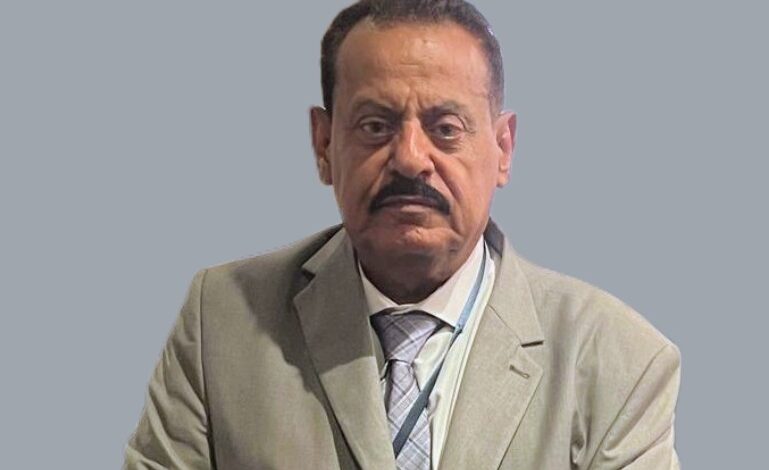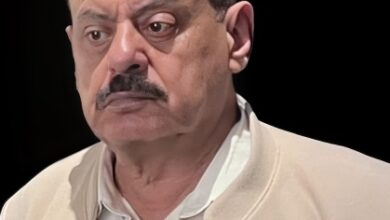Prank and Punishment

Yemeni mp
Ahmed Saif Hashed
I have always felt a profound anxiety and terror about punishment. Fear consumed me; the authority of fear left its mark on my soul. There was no room to cultivate the convictions formed by awareness, neither at home nor in school.
The “School of Punishment” ruled over us, holding the ultimate authority. It was, or nearly was, a “school” endowed with a punitive power that parents and teachers presented as absolute.
A father could never plead with a teacher to be lenient with his son during punishment. Instead, the father would encourage and urge the teacher to discipline his child, even going so far as to empower him with greater severity. The father felt relieved and grateful to the teacher if he inflicted any punishment on his son, no matter how harsh or painful.
This situation might make you feel as if a sadistic desire from both sides converged upon you. You find yourself cornered between them in a narrow space, with no escape in front of you and no way out behind you.
We were governed by the authority of fear from the father at home and the teacher at school. A deep feeling lingered within me that the punishments from both the teacher and the father were harsh, repulsive, inhumane, and painful to both body and spirit.
I was thin and weary, my face pale and sallow. I still remember certain features that invaded my face in early childhood, which were supposed to appear much later in life. The vertical lines I observed between my eyes, devouring my youthful visage, remain etched in my memory like an indelible tattoo.
* * *
I tried to feign illness to avoid going to school. Not attending school meant an immense burden lifted from my shoulders. A day off for any reason brought me joy, even if I were genuinely ill; I might even wish for my sickness to extend for as long as possible. I felt an unparalleled relief despite the weight of illness. For one or two days, I could escape the worries of school—the only respite I could manage.
Any absence, for any reason, represented a reprieve from my fears, allowing me to evade the teacher, the school, and the punishment.
One day, with childlike innocence, I told my older brother Ali, whom I adored:
“I will share a secret with you, but you mustn’t tell anyone.” He agreed, offering me reassurance and trust. I confided that I would pretend to be sick the next day to avoid school. He supported my plan and added a piece of advice: to cut an onion and place it under my armpits before sleeping, so I would appear feverish in the morning. He said they used to do this when they wanted to feign illness in military training.
I followed my brother’s wisdom, hardly sleeping that night, careful to keep the onion slices tucked under my arms so they wouldn’t slip or fall during the night. The pungent, unpleasant smell of the onions bothered me greatly, yet it was, in any case, a lesser evil than school.
My brother, who was supposed to keep his promise and guard my secret, especially from our father, instead went to him and revealed my intentions. The prank was set, and I fell into his trap like a wild rabbit caught in a hunter’s snare—a trick I never anticipated.
When my father called me in the morning to go to school, I feigned illness, insisting that I was very sick. I tried to convince him that I couldn’t rise from bed due to the severity of my condition. I struggled and stumbled as I attempted to get up, weighed down by the illness I was pretending to embody.
I assumed my father would be concerned as soon as he saw me unwell, unable to lift myself. I expected him to place his palm on my forehead to check if I was hot and feverish, or perhaps to simply let me be, allowing me to “recover” for a day or two—time I could secretly steal from my school days, given my supposed ailment.
I thought he might scold me for needing to go to school but would refrain from forcing me, especially seeing me so weak and unable to rise. I anticipated he would excuse me for that day due to my illness, but what actually happened was shocking and completely outside my expectations!
Instead of expressing concern for my plight or allowing me to wallow in my feigned illness, I found my father, with surprising agility, reaching for one of his shoes.
He struck me across the face and head with a force that left me startled and screaming at the top of my lungs, running like a thief pursued by a battalion intent on capturing him. From the very first slap, I realized I had become a victim of “betrayal,” intended as a lesson, or perhaps I had fallen into the trap of a false pretense.
* * *
This incident may have become a complex in my life, particularly fueling the doubt and suspicion I often feel towards others. It might also explain why I repeatedly fail in any role I attempt to play, even under the pressing weight of necessity. My attempts to embody any character other than my own genuine self, with its glaring traits, often end in failure. Even lying feels like an insurmountable challenge for me. Perhaps those in the field, such as psychologists, would offer a different perspective on this.
I remembered this story while listening to the audiobook “The Preachers of the Sultans” by the Iraqi sociologist Dr. Ali Al-Wardi. He spoke of the cunning dichotomy between what we declare to the public and what we conceal in our hearts. The preachers of the sultans, their collusion with tyrants, the psychological crisis of the preacher who urges people to abandon the world and its temptations while simultaneously indulging in its pleasures.
This idealistic preaching is employed in a stark ideological, political, and extremist rhetoric. Such insidious thinking thrives in the shadows of tyrants, nourished by the scraps from their tables. We see applause for the oppressor and disdain for the oppressed, a correlation between the intensification of social injustice and the proliferation of preaching.
I recalled my story as I witnessed those who condemn the atrocities occurring in Palestine—atrocities that are undoubtedly reprehensible—while ignoring the even more horrifying crimes committed by our rulers against their own people. They exploit external events to legitimize their rule and reinforce their tyranny, compensating for their economic and social failures and their repeated shortcomings regarding the needs of their own nations.
They evade accountability by diverting attention to Israel, America, and other external issues, using global political events to serve their oppressive regimes. I felt we needed a thousand shoes and a million slaps to rectify our situation.
I recalled my story as I observed the stark contradictions we live today between what is said and what is done. The paradox between truth and the claims made, between reality and illusion, is evident in the intertwining of politics with religion, or the use of religion to serve political agendas and the interests of states. As it is often said, “Whenever politics enters something, it corrupts it.”
I thought of my own experience as I witnessed charlatans claiming piety, righteousness, and virtue, urging people towards justice and equity, while vehemently rejecting oppression—yet only as long as this resistance remains distant from the very people they govern. Meanwhile, these authorities perpetrate every form of horror and tyranny against us and our nations.
They condemn the fanaticism of others while they themselves indulge in all manner of toxic biases, having absorbed them since childhood. They drown in their mire, sinking to its depths, or plummeting into the abyss of hell.
They advocate for knowledge and deep thinking, yet in reality, they saturate our educational curricula with repugnant fanaticism and heavy ignorance. They work to entrench this in educational institutions—from kindergarten to school, and then to university. Indeed, they have succeeded in transforming these supposed centers of learning into arenas of indoctrination and dullness, extinguishing the flames of reason, stifling free thought, and shackling scientific inquiry with countless constraints and limitations.
* * *






